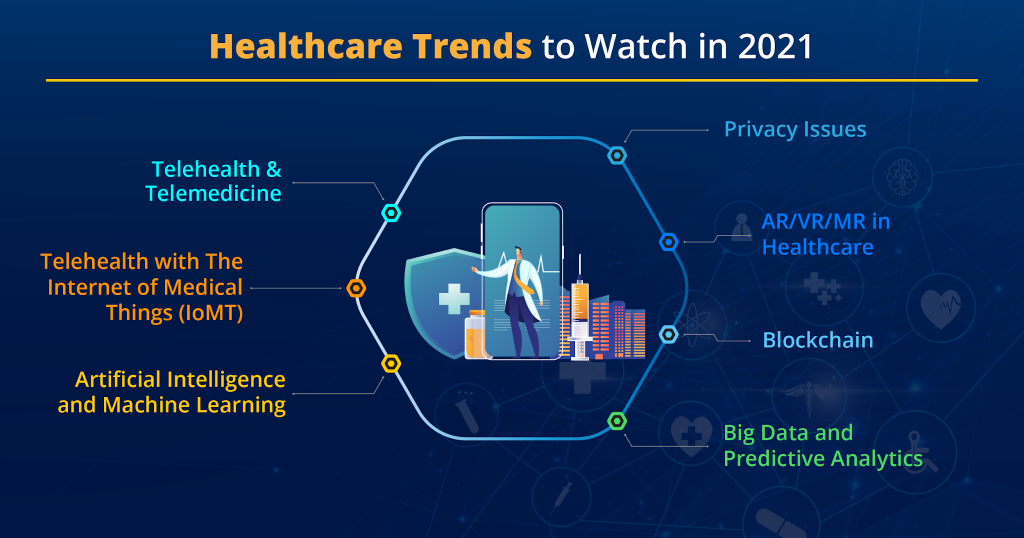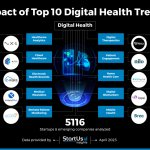The Ultimate Guide To Embracing New Technology Trends In Digital Health: Unlock The Future Of Healthcare Now!
New Technology Trends in Digital Health
Introduction
Dear Readers,
Welcome to our article on the new technology trends in digital health. In this rapidly evolving digital age, technology plays a vital role in transforming the healthcare industry. From innovative wearables to telehealth solutions, advancements in technology have revolutionized the way we approach healthcare. In this article, we will explore the latest trends in digital health and their impact on patient care and overall well-being.
2 Picture Gallery: The Ultimate Guide To Embracing New Technology Trends In Digital Health: Unlock The Future Of Healthcare Now!


Now, let’s dive into the exciting world of digital health and discover the cutting-edge technologies that are shaping the future of healthcare.
1. Telemedicine and Virtual Care
🌐 Telemedicine and virtual care have emerged as game-changers in healthcare. With the ability to consult healthcare professionals remotely, patients can receive medical advice and prescriptions without leaving their homes. This technology has become even more critical during the COVID-19 pandemic, enabling individuals to access healthcare while minimizing the risk of exposure to the virus.
Telemedicine Benefits:
– Improved access to healthcare services, especially in rural or underserved areas.
– Reduced healthcare costs and travel expenses.
– Convenience and time-saving for patients with busy schedules.
– Enhanced monitoring and follow-up care for chronic conditions.
2. Artificial Intelligence (AI) in Healthcare

Image Source: startus-insights.com
🤖 Artificial Intelligence has revolutionized various industries, and healthcare is no exception. AI-powered technologies can analyze vast amounts of medical data, assist in diagnosing diseases, and predict treatment outcomes. Machine learning algorithms can identify patterns and anomalies in medical images, enabling early detection of diseases such as cancer.
AI Benefits:
– Accurate and faster diagnosis, leading to better patient outcomes.
– Personalized treatment plans based on individual patient data.
– Improved efficiency in medical research and drug discovery.
– AI-powered chatbots provide instant medical advice and support.
3. Internet of Things (IoT) in Healthcare
🌐💡 The Internet of Things has paved the way for smart healthcare solutions. IoT devices, such as wearable fitness trackers and smart home medical devices, collect and transmit real-time health data. This data can be utilized by healthcare professionals to monitor patients remotely, track vital signs, and detect any abnormalities.
IoT Benefits:
– Continuous monitoring of patient health, leading to early detection of issues.
– Remote patient monitoring reduces hospital readmissions.
– Improved medication adherence through smart pill dispensers.
– Real-time alerts and notifications for patients and healthcare providers.
4. Blockchain in Healthcare
🔗 Blockchain technology has gained popularity in the healthcare industry due to its potential to enhance data security, interoperability, and privacy. By using decentralized ledger systems, patient medical records can be securely stored and accessed by authorized healthcare providers. Additionally, blockchain can facilitate secure sharing of research and clinical trial data.
Blockchain Benefits:

Image Source: techment.com
– Secure storage and sharing of patient health records.
– Improved interoperability between different healthcare systems.
– Enhanced data privacy and protection against cyber threats.
– Streamlined clinical trials and research collaboration.
5. Augmented Reality (AR) and Virtual Reality (VR) in Healthcare
👓 Augmented Reality and Virtual Reality technologies have found their way into healthcare, transforming medical training, patient education, and pain management. Surgeons can utilize AR overlays during surgeries to visualize patient anatomy in real-time. VR technology can be used to create immersive experiences for patients, reducing anxiety during medical procedures.
AR/VR Benefits:
– Enhanced medical training and surgical planning.
– Improved patient education and engagement.
– Non-pharmacological pain management techniques.
– Therapeutic applications for mental health and rehabilitation.
6. Robotics in Healthcare
🤖 Robotics has made significant advancements in healthcare, from surgical robots assisting in complex procedures to robotic exoskeletons aiding in rehabilitation. Robots can perform precise tasks with minimal invasiveness, reducing the risk of human error and improving patient outcomes.
Robotics Benefits:
– Minimally invasive surgeries with improved precision.
– Rehabilitation support for individuals with mobility impairments.
– Automation of repetitive tasks, freeing up healthcare professionals’ time.
– Remote surgery capabilities, expanding access to specialized care.
FAQ
1. What are the challenges of implementing digital health technologies?
Implementing digital health technologies may face challenges such as data security and privacy concerns, regulatory compliance, interoperability issues between different systems, and resistance to change from healthcare professionals.
2. How can digital health technologies improve patient engagement?
Digital health technologies can improve patient engagement by providing easy access to healthcare services, personalized health information, remote monitoring capabilities, and interactive tools for self-management.
3. Are digital health technologies affordable for everyone?
While the cost of digital health technologies has decreased over time, affordability remains a concern for some individuals. However, government initiatives and insurance coverage are making these technologies more accessible to a wider population.
4. Can digital health technologies replace traditional healthcare settings?
Digital health technologies cannot replace traditional healthcare settings entirely. They serve as complementary tools to enhance healthcare delivery and improve patient outcomes. Face-to-face interactions and physical examinations are still necessary in many cases.
5. How can digital health technologies contribute to preventive healthcare?
Digital health technologies enable continuous monitoring of health parameters, early detection of diseases, and personalized recommendations for preventive measures. They empower individuals to take proactive steps towards maintaining their well-being.
Conclusion
In conclusion, the new technology trends in digital health are transforming the healthcare landscape. Telemedicine, AI, IoT, blockchain, AR/VR, and robotics are revolutionizing patient care, improving access to healthcare services, and enhancing treatment outcomes. While these technologies bring numerous benefits, it is crucial to address challenges related to data security, privacy, and implementation. As we move forward, embracing these digital health innovations will play a pivotal role in shaping the future of healthcare.
Final Remarks
Dear Readers,
As we conclude this article, it is important to note that while digital health technologies offer immense potential, they should not overshadow the importance of human touch and care in healthcare. The integration of technology should be done in a way that complements the existing healthcare system and enhances patient outcomes. It is crucial to strike a balance between technological advancements and the human aspect of healthcare.
We hope this article has provided valuable insights into the new technology trends in digital health. Stay informed, embrace innovation, and together, let’s shape a healthier future.
This post topic: Latest Technology Trends

